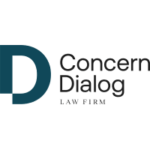-
What are the main methods of resolving disputes in your jurisdiction?
In Mauritius, commercial disputes are resolved through litigation before the Courts or through Alternative Dispute Resolution (arbitration and mediation).
Commercial litigation usually commences in the Commercial Division of the Supreme Court and is an adversarial process.
Arbitration is also an adversarial process. International arbitration is governed by the International Arbitration Act 2008 and the New York Convention, as domesticated in the Convention on the Recognition and Enforcement of Foreign Arbitral Awards 2004. Parties involved in a domestic dispute usually resort to ad hoc arbitration based on relevant contractual provisions.
As regards mediation, the Chief Justice and the President of the Intermediate Court are also empowered, before or at any stage of any proceedings, to refer any civil suit, action, cause or matter to a Judge/Magistrate of the Supreme Court/Intermediate Court for mediation. It is not uncommon for parties to resolve disputes through their legal representatives even after a case has been fixed for trial. However, the absence of any unified mechanism for the enforcement of mediation settlement agreements has traditionally limited parties’ recourse to mediation.
-
What are the main procedural rules governing litigation in your jurisdiction?
The main procedural rules governing litigation in Mauritius are found in the Courts Act, Supreme Court Rules 2000, the Code Civil Mauricien, the Code de Procédure Civile and the Constitution.
It is to be noted that Mauritius has a hybrid legal system due to its successive past colonisation by France and Great Britain. Private law is based on the “Code Civil Mauricien”, the “Code de Commerce” and the “Code de Procedure Civile”, all of which are of French inspiration. Criminal laws are found in the Criminal Code which was enacted during French rule. Since Great Britain took over in 1810 and even after Mauritius gained independence in 1968, many laws have followed the English model and our courts follow some English procedural rules, for example the rules of evidence and criminal procedure.
-
What is the structure and organisation of local courts dealing with claims in your jurisdiction? What is the final court of appeal?
Our Constitution provides for a Supreme Court that has unlimited jurisdiction to hear any civil or criminal proceedings under any law other than a disciplinary law and such jurisdiction and powers as may be conferred upon it by the Constitution or any other law. The general rule is that the Supreme Court has unlimited jurisdiction unless that jurisdiction has been specifically cut down by statute.
The Supreme Court also serves as an appellate court for both civil and criminal matters.
The Judicial Committee of the Privy Council (JCPC) serves as the final court of appeal for Mauritius. Appeal to the Privy Council will lie either with leave of the Supreme Court of Mauritius or, in special circumstances, with direct leave from the Privy Council. The Privy Council will hear appeals on any point of law or the construction of any provision of the Constitution of the Republic of Mauritius.
The divisions of the Supreme Court are the Family Division, Land Division, Commercial Division, Mediation Division, Master’s Court and Assizes. The Bankruptcy Division falls under the jurisdiction of the Commercial Division and it deals with matters involving bankruptcy, insolvency, and company winding-up, whereas the Commercial Division is responsible for handling commercial disputes.
The Subordinate Courts are the Intermediate Court, Industrial Court, District Courts, Court of Rodrigues, and the Bail and Remand Court.
The District Court has jurisdiction to hear claims up to MUR 250,000, whereas the Intermediate Court can hear cases exceeding MUR 250,000 but not exceeding MUR 2 million. The Intermediate Court has a financial crime division, which deals with financial crimes. The Supreme Court has unlimited jurisdiction and can hear cases exceeding MUR 2 million. The Industrial Court deals with industrial disputes arising under specific enactments, and there is no limit on the amount that can be claimed before it.
-
How long does it typically take from commencing proceedings to get to trial in your jurisdiction?
In Mauritius, from commencing proceedings to get to the trial, it typically takes nine months to two years.
-
Are hearings held in public and are documents filed at court available to the public in your jurisdiction? Are there any exceptions?
Yes, hearings are held in public. However, it should be noted that access is not allowed where proceedings are held before the Judge in Chambers, or when a judge or a magistrate deems it necessary or expedient under section 161A of the Court Act 1945, provided that this does not apply to the announcement of the decision and excludes only those who are not parties to the trial:
- in circumstances where publicity would prejudice the interests of justice or of public morality;
- in order to safeguard the welfare of persons under the age of 18;
- in order to protect the privacy of persons concerned in the proceedings;
- in the interests of defence, public safety or public order.
-
What, if any, are the relevant limitation periods in your jurisdiction?
In Mauritius, the relevant limitation period are as follows:
- For in rem claims, which relate to property, the limitation period is 30 years.
- For in personam claims, the Plaintiff has 10 years to take legal action, starting from the date on which the cause of action arises. (some exceptions can be found in the Code de Commerce, the Code Civil Mauricien and the Insolvency Act 2009).
- For judicial review of executive decisions, the application must be made within three months of the decision, which is a long-stop. An application made within the three-month long-stop period can still be set aside if the court finds that, owing to the circumstances of the case, it was not made promptly.
- For claims brought against the State or public officers, the action must be initiated within two years from the date of the act or omission that has given rise to the action as per section 4 of the Public Officers Protection Act.
-
What, if any, are the pre-action conduct requirements in your jurisdiction and what, if any, are the consequences of non-compliance?
There are no pre-action conduct requirements in Mauritius. However, certain exceptions exist depending on the nature of the claim.
For contractual cases, a Plaintiff needs to request a Defendant to perform all his obligations under the contract before suing him, as long as the time limit has not expired, and the requirement to make such a request was not waived. A “Notice – Mise en Demeure” (MED) is therefore a prerequisite for certain actions. However, the Supreme Court has held that failure to serve a MED was not fatal where doing so would not serve any purpose or the damage claimed is compensatory in nature as opposed to being moratory.
For cases against public officers, an action cannot be initiated unless one months’ written notice and the subject matter of the claim was given beforehand to the other party.
Further, certain applications, like judicial review will not be allowed where the Applicant did not exhaust all remedies prior to his application.
In cases against foreign defendants, the judge in chambers must grant leave before lodging the action and serving it on the foreign party.
-
How are proceedings commenced in your jurisdiction? Is service necessary and, if so, is this done by the court (or its agent) or by the parties?
Civil and commercial proceedings before the Supreme Court are initiated by way of plaint with summons under the signature of an Attorney-at-Law. Proceedings before the Commercial Division are commenced through the electronic filing system.
An action can also be started by way of motion supported by affidavit if the action is for a prerogative order or if it is urgent. Moreover, an action before the judge in chambers is initiated by way of praecipe and affidavit.
In addition, an action before the subordinate courts is entered by way of praecipe served on the Defendant by registered post with notice of delivery. In general, service is effected through court ushers or private ushers, and where personal service is unsuccessful, the court may order a substituted service.
For service in a foreign jurisdiction, the Supreme Court will order that service be effected in conformity with the laws of the relevant country. The Plaintiff will bear the responsibility for such service. As per section 61 of the Courts (Civil Procedure) Act, the filing and service out of the jurisdiction of an initial process may be allowed where –
- the whole subject matter of the action is immovable property situate within the jurisdiction (with or without rents or profits);
- an act, deed, will, contract, obligation or liability affecting immovable property situate within the jurisdiction, is sought to be construed, rectified, set aside, or enforced in the action;
- relief is sought against a person ordinarily resident within the jurisdiction;
- the action is founded on a breach or alleged breach within the jurisdiction of a contract wherever made, which ought to be performed within the jurisdiction;
- an injunction is sought as to anything to be done within the jurisdiction or a nuisance within the jurisdiction is sought to be prevented or removed, whether damages are or are not sought; or
- any person out of the jurisdiction is a necessary or proper party to an action properly brought against some other person duly served within the jurisdiction.
-
How does the court determine whether it has jurisdiction over a claim in your jurisdiction?
Jurisdiction is determined by several factors, including but not limited to the subject matter of the dispute, the stage of the proceedings, the monetary threshold, contractual provisions, and geographical consideration. It should be noted that Mauritius has specialised courts for specific matters such as the Family Division or the Land Division. Geographical consideration is also important when it comes to the District Court as the location where the cause of action arose or where the Defendant resides influence which lower court will have jurisdiction.
A foreigner, even if not resident in Mauritius, may be summoned before the Mauritian courts for the enforcement of obligations contracted by him in Mauritius with a Mauritian; he may also be brought before the Mauritian courts for obligations contracted by him abroad with a Mauritian national.
A Mauritian defendant may be subject to the jurisdiction of the Mauritian courts, regardless of whether the obligations were contracted outside Mauritius.
Our courts will generally refuse to exercise its jurisdiction in contractual matters which provide for resolution of disputes before another jurisdiction, unless it finds that the choice of such jurisdiction would be against the public policy of Mauritius.
The Court will also decline jurisdiction where arbitration clauses are provided for to resolve disputes and the defendant raises preliminary objections as regards the jurisdiction of the Court to resolve that dispute.
-
How does the court determine which law governs the claims in your jurisdiction?
The general rule is that parties are free to agree on which law will govern their contract. However, this choice is subject to the principle of public order (ordre public). The Mauritian legal system also recognizes the principle that the law applicable to a contract should be that of the place where it was made and is to be performed.
The general rule regarding non-contractual obligations is that the law of the country where the damages occurs or is likely to occur will apply., except if the tort is manifestly more connected to another country.
-
In what circumstances, if any, can claims be disposed of without a full trial in your jurisdiction?
A claim can be disposed of without a full trial in the following circumstances:
- The defendant has raised preliminary objections which can be argued upon by the parties without the need for any evidence (or very limited evidence) to be adduced and the defendant is of the view that arguing the preliminary point will dispose of the matter. When raising such an objection, the defendant must also file his defence on the merits of the case except if the preliminary objection pertains to the jurisdiction of the court where such an objection must be taken prior to filing a defence on the merits of the case;
- The parties have reached a settlement, the terms of which will be ratified and made a judgment of the Court at the request of the parties. Such a judgment is originally contractual but becomes judicial in character once ratified by the Court. It acquires the res judicata effect (l’autorité de la chose jugée) effect and is fully enforceable like any other court judgment.
-
What, if any, are the main types of interim remedies available in your jurisdiction?
The main types of interim remedies in Mauritius are prohibitory/mandatory injunctions, freezing orders (usually granted where the applicant has a good arguable claim and that there is a real risk of dissipation of assets by the respondent), provisional attachment orders (saisie-arrêt) and restraining orders (saisie conservatoire).
Prohibitory injunctions follow the American Cyanamid principles, i.e. they are granted if there 9sa serious issue to be tried, the balance of convenience lies in favour of granting an injunction and damages will not be an adequate remedy.
-
After a claim has been commenced, what written documents must (or can) the parties submit in your jurisdiction? What is the usual timetable?
Case management is at the discretion of the trial judge/magistrate. Once a claim has been lodged in the Registry of the relevant Court, the Defendant has to appear before the Court on the returnable date to file his defence.
The Defendant has the right to first file a demand of particulars based on the claim lodged. In turn, the Plaintiff has to file the answers to the demand of particulars requested on behalf of the Defendant. In certain cases, the Defendant may wish to request for further and better particulars.
Once all requested documents have been exchanged between the parties, the Defendant has to now file its plea which may also contain a plea in limine litis (preliminary objection) which would then be determined prior to the case being heard on the merits.
The Defendant may even file a counterclaim to which the Plaintiff may reply. Once the stage of the ‘mise en état’ is completed, the matter is then fixed for trial/hearing where each party presents its case. It is now a common practice to also file written submissions in law once the case has been heard.
-
What, if any, are the rules for disclosure of documents in your jurisdiction? Are there any exceptions (e.g. on grounds of privilege, confidentiality or public interest)?
The Supreme Court Rules provide that any party who intends to adduce any documentary evidence, in addition to the plaint and the plea, must, not later than 4 weeks before the hearing, unless agreed otherwise by the parties, serve on the other party’s Attorney a notice signed by his attorney, describing the documents and stating where the documents may be examined.
Further, every notice of documentary evidence must contain an invitation to every other party, calling upon him to agree in writing that he admits such evidence to be what it appears to be, namely that a document which is stated to –
- be an original was written, signed or executed as it purports to have been;
- be a copy is a true copy; and
- have been served, sent or delivered was so served, sent or delivered,
subject to the rules of evidence as to the admissibility of the documents.
In general, as an exception to the rule, disclosure can be refused if it is confidential by statute, under legal advice or litigation privilege, or if it is an official secret. However, disclosure can still be made accessible by statute or a judge order. For example, under the Banking Act 2004, section 64 (9) stipulates that “the Director-General under the Prevention of Corruption Act, the Chief Executive of the Financial Services Commission established under the Financial Services Act 2007, the Commissioner of Police, the Director-General of the Mauritius Revenue Authority established under the Mauritius Revenue Authority Act, the Enforcement Authority under the Asset Recovery Act, or any other competent authority in or outside Mauritius who requires any information from a financial institution relating to the transactions and accounts of any person, may apply to a judge in chambers for an order of disclosure of such transactions and accounts or such part thereof as may be necessary.”
-
How is witness evidence dealt with in your jurisdiction (and in particular, do witnesses give oral and/or written evidence and what, if any, are the rules on cross-examination)? Are depositions permitted?
In general, witnesses are summoned to attend court to provide oral evidence and/or produce written/documentary evidence and may be cross-examined on the matter, at the discretion of the other party. Any witness heard in any proceeding before a Court shall be heard upon oath. It should be noted that re-examination is also allowed but it is limited to addressing issues raised during cross-examination and cannot introduce new matters.
Cross-examination is dealt with under the Courts Act 1945 allowing parties to cross-examine witnesses as to previous statements made to challenge their credibility and reliability, provided that the questions are relevant. Leading questions are permitted, as long as they are not abusive or unfair towards the witness. It should be noted that if a party turns hostile during cross-examination, the witness may be asked questions like how they would in cross examination of an opposing witness.
When it comes to civil and commercial cases, there are some key principles that must be noted. Firstly, contractual obligations valued over MUR 5,000, require a written document as evidence. This excludes commercial matters, as for the latter, other forms of written documentation can be presented as “beginnings of proof in writing”. Secondly, in disputes relating to rent or indemnity for the occupation of immovable property, oral evidence may be admitted if the existence of the lease is disputed and not fully supported by written documents. It should be noted that computer generated statements are allowed under sections 181E of the Courts Act.
Lastly, depositions in Mauritius are permitted under Section 174 of Courts Act which states that “any party who intends to call a witness who on the day of the trial -(a) will not be in Mauritius; or (b) may not be alive or fit to give evidence because of his failing health, shall make an ex-parte application of a de bene esse hearing of the witness before the Judge in Chambers.”
-
Is expert evidence permitted in your jurisdiction? If so, how is it dealt with (and in particular, are experts appointed by the court or the parties, and what duties do they owe)?
In Mauritius, the court does not independently seek expert evidence. It is the responsibility of the parties to call and present their expert witnesses and, if desired, to file joint expert reports. Parties will call their own expert on issues requiring expert evidence.
The duty of the expert is to furnish the trial judge/magistrate with the necessary information for testing the accuracy of their conclusions. The trial judge/magistrate is not bound by the views of the expert even if it is uncontradicted. Expert evidence presented to the Court should be, and should be seen to be, the independent product of the expert. Moreover, independent assistance should be provided to the Court by way of objective unbiased opinion regarding matters within the expertise of the expert witness.
-
Can final and interim decisions be appealed in your jurisdiction? If so, to which court(s) and within what timescale?
For a decision to be subject to an appeal in Mauritius it should bear the characteristics of finality. Appeals against final decisions of the lower courts, for instance, the Intermediate Court or District Court lie to the Supreme Court sitting in its appellate jurisdiction. Whereas appeals from the Supreme Court sitting in its original jurisdiction lies before the Court of Civil Appeal. Any decision of the Court of Civil Appeal would then be appealable before the Judicial Committee of the Privy Council upon obtaining leave of the Supreme Court. No appeal shall however lie against an interim decision except by leave of the trial judge.
A notice of appeal must be lodged in the Registry of the relevant court and be served on all the adverse parties within 21 days from the date of the judgment.
-
What are the rules governing enforcement of foreign judgments in your jurisdiction?
Mauritian general law governs the enforcement of foreign judgments through a specific procedure called exequatur, the legal basis of which is Article 546 of the ‘Code de Procedure Civile’. Once a judgment is granted exequatur, it may be enforced in Mauritius in the same way as a Mauritian judgment. Exequatur can only be availed of if the foreign judgment is final and has not been appealed against.
Otherwise, there are specific statutory provisions regarding the enforcement of United Kingdom judgments that are contained in the Reciprocal Enforcement of Judgment Act 1923 (“REJA”). This procedure is only available for money judgments rendered by superior courts in the United Kingdom. However, the Supreme Court of Mauritius has held in the case of Dallah Albaraka (Ireland) Ltd. v Pentasoft Technologies Limited & Anor [2012 SCJ 463] that a judgment creditor seeking to register and enforce a United Kingdom judgment can also avail himself of the procedure of exequatur under the ‘Code de Procedure Civile’.
The ‘Code de Procedure Civile’ does not set out the conditions that are to be fulfilled for an application for exequatur to be granted. The test which is applied by the court to determine whether a foreign judgment may be granted exequatur was set out in the case of D’Arifat v Lesueur [1949 MR 191]. Any final judgment or order obtained in a foreign court would be enforceable in Mauritius without re-examination of the merits of the case, provided that:
- the foreign judgment is still valid and capable of execution in the country where it was delivered;
- it is not contrary to any principle affecting public order in Mauritius;
- the defendant was regularly summoned to attend the proceedings; and
- the court which delivered the judgment had jurisdiction to determine the matter.
-
Can the costs of litigation (e.g. court costs, as well as the parties’ costs of instructing lawyers, experts and other professionals) be recovered from the other side in your jurisdiction?
Initially, the parties bear their own costs. The general rule is that the costs of the winning party are borne by the losing party. There must however be an express demand for costs in the plaint for the Court to order costs. These costs will usually include the court fees, expenses for instructing lawyers, experts and other professionals. However, the Court may make a different order, if any, to make, by having regard to all the circumstances, including the parties’ conduct, whether a counterclaim has succeeded, and any admissible offer made to settle.
It should be noted that appeals before JCPC and international arbitration matters are different, as the Supreme Court (International Arbitration Claims) Rules 2013 may allow a winning party to receive close to its real costs on a standard basis or indemnity basis. Therefore, in general, litigation costs are left at the discretion of the trial judge.
Pursuant to the Courts Act 1945, wasted costs can be ordered by the Court at any stage of any civil proceedings on application of a party who has incurred those costs. The legal representative of a party will be liable to meet personally the whole or in part of the wasted costs. This is as a form of indemnity for improper, unreasonable or negligent act or omission of counsel/client resulting in additional costs being incurred to a party on the opposing side.
Adjournment costs can also be imposed by the Court to avoid undue delay in trial arising from repeated postponements of the case. Any party to civil proceedings can apply for adjournment costs at any stage. The adverse party having to pay the costs must have had applied for an adjournment which was granted by the Court.
-
What, if any, are the collective redress (e.g. class action) mechanisms in your jurisdiction?
Mauritius does not have a formal class action mechanism. Each individual who seeks judicial redress from the court must be named as a party to the proceedings. Furthermore, the case-law in Mauritius, albeit in the context of applications for constitutional redress or relief, does not recognize representative standing. Direct personal interest is required for a party to have locus standi.
However, lately, there has been some change lately, namely in the landmark case Eco-Sud and Others v Minister of Environment, Solid Waste and Climate Change and Another [2024] UKPC 19, where the Judicial Committee of the Privy Council (JCPC) addressed the issue of locus standi in environmental appeals under Mauritian law and held that environmental NGOs like Eco-Sud have standing to challenge decisions that may adversely affect the environment, thereby promoting broader access to environmental justice.
-
What, if any, are the mechanisms for joining third parties to ongoing proceedings and/or consolidating two sets of proceedings in your jurisdiction?
In Mauritius, pursuant to Rule 38(1) to (4) of the Supreme Court Rules, a defendant to a claim can lodge a third-party procedure prior to the filling of his/her plea. Such procedure is resorted to when a defendant, during an ongoing proceeding, wishes to claim against a third party any relief or remedy relating to or connected with the original subject matter of the action and substantially the same relief or remedy being claimed by the Plaintiff. Such procedure might also be essential in cases where the third party’s presence is necessary to determine the real issue in controversy. A third-party procedure is lodged in the same way as the main case has been lodged. Such procedure shall be completed when the third-party appears before the relevant Court upon being issued with a summons. The Defendant shall then make a motion to have the third-party procedure consolidated with the main case.
Rule 38(5) of the Supreme Court Rules 2000 provides for a ‘tierce opposition’ whereby any person who is not a party to an action may intervene in the ongoing proceedings provided that he/she has obtained leave to do so from a Judge upon good cause shown. The Judge in Chambers has jurisdiction to determine an application for leave to intervene in the main case. Such application must therefore be made by way of a proecipe supported by an affidavit. The Judge in Chambers must be satisfied on affidavit evidence that the applicant is not a mere busybody but someone who has an actual interest in the main case and who is individually and personally affected by the cause of action. The applicant would therefore need to show that the case in contention will give rise to a judgment declaring or decreeing certain of his/her rights and that his/her absence from the main proceedings might cause him/her some actual or future prejudice.
-
Are third parties allowed to fund litigation in your jurisdiction? If so, are there any restrictions on this and can third party funders be made liable for the costs incurred by the other side?
There are no express prohibitions on third party litigation funding in Mauritius. While such funding is not restricted in itself, it remains uncommon. Moreover, there is currently no legislation in Mauritius which specifically caters for third party litigation funding.
-
What has been the impact of the COVID-19 pandemic on litigation in your jurisdiction?
The COVID-19 pandemic significantly disrupted the litigation process in Mauritius. Court operations were initially suspended during lockdown periods, resulting in substantial backlogs. During that period, the judiciary adopted several measures such as electronic filing and remote hearings for urgent matters. Even today, certain matters before the Judge in Chambers are heard remotely. This period has certainly accelerated discussions on digital reform within the legal system.
-
What is the main advantage and the main disadvantage of litigating international commercial disputes in your jurisdiction?
The main advantage of litigating commercial disputes in Mauritius lies in its hybrid legal system. The Mauritian legal system is peculiar in the sense that it is a mixture of the English and French systems. The Mauritian criminal law, for instance, is inspired from the French penal code but the procedure used, as well as the law of evidence, is English. The company law is English but the Droit de Société which is equally used is French. The Plaint with Summons and Pleas are drafted in English whereas examination-in-chief and cross-examination may be carried out in French, with the permission of the court. As a result of the Mauritian legal system being much influenced by the legal systems of both France and England, Mauritius has a hybrid legal system whereby the French civil law and the English common law form part of the Mauritian legal system. The French Civil Code, the French Code de Commerce and the French Penal Code – as amended to suit the Mauritian context – apply in Mauritius alongside the English common law system. Company law, trust law, constitutional and administrative law, maritime law and employment law have been imported from the English legal system. Private international law, however, is based on French private international law. This eclectic system has served international commercial litigation very well in the past and will continue to do so.
In addition, the Commercial Division of the Supreme Court, with its e-judiciary system, has permitted cases to be heard rather swiftly compared to other divisions of the Supreme Court. Most, if not all, international commercial disputes with a connection to Mauritius are heard before the Commercial Division. Parties do not need to be physically present at each and every stage of the proceedings, except at the final stage, which is the hearing of the dispute.
Another advantage is the economy of costs. Litigation in the Mauritian jurisdiction is relatively less costly than in other similar jurisdictions.
Mauritius also retains JCPC as the final court of appeal which offers legal precedents and enhances Mauritius’s legal credibility to potential investors.
The main disadvantage remains the length of the proceedings.
-
What is the most likely growth area for commercial disputes in your jurisdiction for the next 5 years?
Mauritius has witnessed an increase in foreign direct investments over the last couple of years, which may lead to an increase in cross-border disputes in the future. The recent Supreme Court judgment of Hobler v Harker [2024 SCJ 159] held that it is not a requirement that a judgment debtor owns assets in the Mauritian jurisdiction for a foreign judgment to be recognised against him in Mauritius. Following the position of the French Cour de Cassation, our courts now consider that as long as a judgment creditor satisfies the court that it has an interest to seek the enforcement of a foreign judgment against a judgment debtor irrespective of whether the latter has assets in Mauritius, the enforcement will be granted if all conditions for exequatur are met. We can therefore expect an increase in enforcement applications in the future.
It will also be interesting to see whether Mauritius will sign the Hague Convention on the Recognition and Enforcement of Foreign Judgments in Civil and Commercial Matters of 2019. Ratifying the convention would make it less cumbersome for judgments delivered in Mauritius to be enforced in third party countries and vice-versa.
-
What, if any, will be the impact of technology on commercial litigation in your jurisdiction in the next 5 years?
In the next five years, technology is expected to have significant impact on commercial litigation in Mauritius. The digitalisation of court procedures, including e-filings across all courts, virtual hearings and digital case management, will improve the efficiency of the judicial process, enabling faster delivery of judgments. Artificial Intelligence is also expected to play an important role in legal proceedings, offering instant legal research and effective case analysis in a matter of just seconds. This will modernise the judicial system. Embracing technology-driven litigation is bound to increase efficiency and reduce costs for litigants.
Mauritius: Litigation
This country-specific Q&A provides an overview of Litigation laws and regulations applicable in Mauritius.
-
What are the main methods of resolving disputes in your jurisdiction?
-
What are the main procedural rules governing litigation in your jurisdiction?
-
What is the structure and organisation of local courts dealing with claims in your jurisdiction? What is the final court of appeal?
-
How long does it typically take from commencing proceedings to get to trial in your jurisdiction?
-
Are hearings held in public and are documents filed at court available to the public in your jurisdiction? Are there any exceptions?
-
What, if any, are the relevant limitation periods in your jurisdiction?
-
What, if any, are the pre-action conduct requirements in your jurisdiction and what, if any, are the consequences of non-compliance?
-
How are proceedings commenced in your jurisdiction? Is service necessary and, if so, is this done by the court (or its agent) or by the parties?
-
How does the court determine whether it has jurisdiction over a claim in your jurisdiction?
-
How does the court determine which law governs the claims in your jurisdiction?
-
In what circumstances, if any, can claims be disposed of without a full trial in your jurisdiction?
-
What, if any, are the main types of interim remedies available in your jurisdiction?
-
After a claim has been commenced, what written documents must (or can) the parties submit in your jurisdiction? What is the usual timetable?
-
What, if any, are the rules for disclosure of documents in your jurisdiction? Are there any exceptions (e.g. on grounds of privilege, confidentiality or public interest)?
-
How is witness evidence dealt with in your jurisdiction (and in particular, do witnesses give oral and/or written evidence and what, if any, are the rules on cross-examination)? Are depositions permitted?
-
Is expert evidence permitted in your jurisdiction? If so, how is it dealt with (and in particular, are experts appointed by the court or the parties, and what duties do they owe)?
-
Can final and interim decisions be appealed in your jurisdiction? If so, to which court(s) and within what timescale?
-
What are the rules governing enforcement of foreign judgments in your jurisdiction?
-
Can the costs of litigation (e.g. court costs, as well as the parties’ costs of instructing lawyers, experts and other professionals) be recovered from the other side in your jurisdiction?
-
What, if any, are the collective redress (e.g. class action) mechanisms in your jurisdiction?
-
What, if any, are the mechanisms for joining third parties to ongoing proceedings and/or consolidating two sets of proceedings in your jurisdiction?
-
Are third parties allowed to fund litigation in your jurisdiction? If so, are there any restrictions on this and can third party funders be made liable for the costs incurred by the other side?
-
What has been the impact of the COVID-19 pandemic on litigation in your jurisdiction?
-
What is the main advantage and the main disadvantage of litigating international commercial disputes in your jurisdiction?
-
What is the most likely growth area for commercial disputes in your jurisdiction for the next 5 years?
-
What, if any, will be the impact of technology on commercial litigation in your jurisdiction in the next 5 years?




























